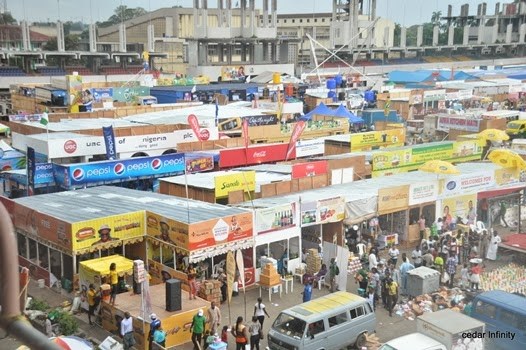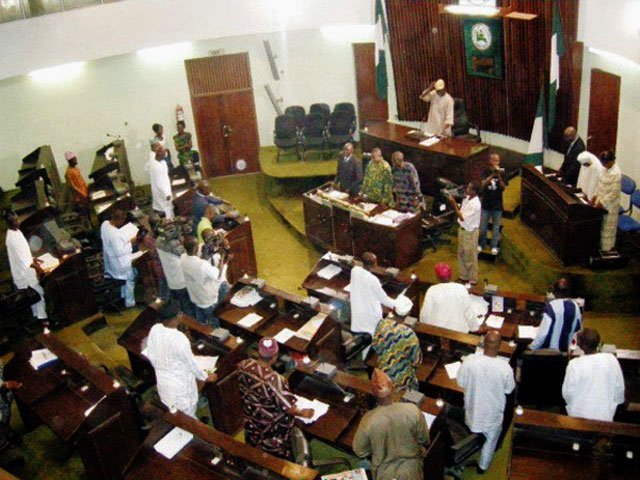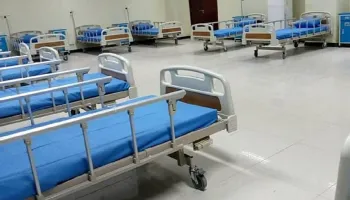BUSINESS
NIMASA Seeks More Judicial Collaboration as Nigeria Exits IMO Piracy List

From Anthony Nwachukwu, Lagos
Satisfied with Nigeria’s efforts at curtailing piracy and maritime criminalities, and its progress in the quest for security in the Gulf of Guinea, the International Maritime Bureau (IMB) has removed the country from its list of piracy hotspots, the Director-General, Nigerian Maritime Administration and Safety Agency (NIMASA), Dr.
Bashir Jamoh, has said.Jamoh, who disclosed that this happened earlier this month, commended the judiciary for their role in achieving the feat and called for more collaboration from them and other stakeholders to enable the country improve its recent successes in maritime security infrastructure, as well as the legal background against piracy and other maritime crimes.
In his welcome address to eminent jurists and distinguished experts at the 2nd Nigerian Admiralty Law Colloquium in Lagos, Jamoh stated that for the agency to keep sailing, both with and against the winds till it gets to its desired destination of maritime security, safety and shipping development, “the cooperation and support of the judiciary is crucial. Speaking on the theme of the colloquium, “Maritime Safety, Security and Shipping Development: Reflections and the Way Forward,” he said “it is imperative that all hands are on deck to ensure the success of Tripod “S” as its benefits to the nation cannot be overstated.”
He added that to maximise the nation’s maritime resources to facilitate development, the bills on NIMASA Act and other laws that also govern the “Tripod S” such as Merchant Shipping Act and Cabotage Act have been amended and were presently before the National Assembly in line with current realities and international best practices. “The theme of this year’s colloquium requires collaboration, cooperation, coordination and communication. It calls for general participation, for in togetherness we can gain efficiency, rationalise, join forces and create economies of scale that will make Nigeria more visible, credible and resourceful.
“Hence, we can safeguard our interests and value cooperatively with our international partners to make Nigerian maritime space attractive to foreign investors. This forum presents another opportunity for reviewing the steps so far taken with a view to achieving a more comprehensive policy for adjudicating admiralty conflicts.”
He commended the judiciary for the recorded convictions of criminals and their sentencing since 2021, which he said has sent a clear message to all would-be practitioners of piracy and sea criminality that Nigerian waters will never again be a safe haven for them, for “they now know that if they do the crime they will serve the time.”
These victories in the courts have rippled across the waters to help reduce piracy to a 27-year low. Additionally, Nigeria has become the judicial benchmark for the entire Gulf of Guinea in admiralty matters as other member-countries are now using the SPOMO Act as their model. Meanwhile, the Nigerian Institute of Advanced Legal Studies (NIALS) noted that the choice of this year’s theme “was necessitated by the obvious fact that in February 2020 we x-rayed the first stand-alone anti-sea piracy and maritime crimes law in the entire Gulf of Guinea (Nigeria’s 2019 Suppression of Piracy and Other Maritime Offenses Act – SPOMO Act).”
NIALS Director-General, Prof. Muhammed Ladan, stated: “We identified the loopholes in the infant law and concluded that despite its teething problems, it remained a vital tool for accelerating and achieving safe and secure shipping in Nigeria.“In April 2021, the maiden colloquium explored the critical role of the judiciary and law enforcement agencies in achieving NIMASA’s Tripod-S initiative (Maritime Safety, Security and Shipping Development) within its Deep Blue project in Nigeria and the Gulf of Guinea, and concluded that, unless member-states step up prosecution efforts and bring suspected pirates to justice, the region will remain the world’s piracy hotspot.”
Citing the IMB’s report on continuous reduction in reported cases, Ladan stated that compared to 2020, 2021 was much better for both Nigeria and the Gulf of Guinea as well as the global maritime community in dealing with piracy and other maritime crimes, with the numbers dropping to seven attacks and 20 kidnapping in Q4 of 2021- the lowest.
He noted: “The region recorded 34 incidents of maritime piracy and armed robbery at sea in 2021, a sharp drop from 81 in 2020, and while kidnappings at sea dropped by 55 per cent in 2021, the region continues to account for all kidnapping incidents globally, with 57 crew taken in seven separate incidents. “The decline of piracy incidents in the Gulf of Guinea also led to the overall global reduction in reported incidents in 2021, with 132 incidents of piracy and armed robbery against ships across the globe, the lowest recorded level since 1994. “However, the Gulf of Guinea which remains the world’s privacy hotspot, is home to Nigeria, whose economy generates over 70 per cent of the seaborne trade in West Africa and Gulf of Guinea because about 90 per cent of global trade is carried out by the international shipping industry for import/export of goods.”
Going forward, “through this strategic colloquium, we wish to enhance the capacity of, and remind our justice sector actors that we will all prosper when the seas around us are safe, secure and free for all to use and exploit natural resources, promote trade and investment, tourism, marine science and technology, maritime transport and infrastructure development to sustain fisheries and protection of the marine environment. “Through this colloquium we hope to build greater understanding of the common challenges of maritime safety and security and how SPOMO Act 2019 seeks to promote synergy among the justice sector.”
Agriculture
NNPC Foundation Empowers Vulnerable Farmers in Oyo, Osun

No fewer than 500 farmers on Tuesday benefited from the NNPC Foundation agricultural training initiative for vulnerable farmers in Osun and Oyo States.
The training, marking the flag-off in the South-West zone of Nigeria, was held at the Ilora Baptist Grammar School, Ilora, Oyo State.
The foundation manages the Corporate Social Responsibility (CSR) initiatives of NNPC Limited, focusing on education, health, environment and energy access to communities nationwide.
The Managing Director of the foundation, Mrs Emmanuella Arukwe, said the initiative demonstrated the commitment to food security and economic empowerment for Nigerian farmers.
Arukwe, who was represented by Dr Bala David, the foundation’s Executive Director, Programme Development, said the project aimed to build resilience, boost productivity and promote sustainable agriculture.
“We are training 6,000 farmers across six zones in climate-smart practices, modern techniques, quality inputs, and market access,” she said.
She, therefore, urged farmers to participate actively and embrace the opportunity to help secure Nigeria’s food and economic future.
Mr Olasunkanmi Olaleye, Oyo State Commissioner for Agriculture and Rural Development, commended NNPC Foundation for the training and empowerment programme.
Olaleye, who was represented by Mr Olusegun Ezekiel, the ministry’s Director of Regulation and Enforcement, said empowering vulnerable farmers was crucial in addressing national food security challenges.
He added that the initiative aligned with Oyo State’s agricultural transformation agenda of Gov. Seyi Makinde.
“We remain committed to supporting initiatives that uplift farmers and improve productivity and livelihoods,” Olaleye said.
He encouraged participants to make the most of the training opportunity to improve their practices.
He also called for future collaboration between the foundation and the ministry to achieve greater impact.
The training consultant, Prof. Daniel Ozok, described vulnerable farmers as smallholders with an under-five-hectare farm size, mainly made up of women, youth, and the elderly.
“These farmers are most affected by climate shocks, hence the need for focused training,” Ozok said.
According to him, training equips them with modern techniques and strategies for improved productivity and market access.
Some of the participants expressed gratitude to NNPC Foundation and promised to apply the knowledge gained from the training.
NAN reports that a medical screening exercise was organised by the foundation for participants on the sidelines of the training.
Training initiative would later be held for farmers in Ekiti and Ondo States on a date different from that of Ogun and Lagos States. (NAN)
Economy
Customs Zone D Seizes Contraband Worth N110m

The Nigeria Customs Service (NCS), Federal Operation Unit (FOU), Zone D, has seized smuggled goods worth over N110 million between April 20 till date.
The Comptroller of Customs, Abubakar Umar, said this at a news conference on Tuesday in Bauchi.
He listed the seized items to include 11,200 litres of petrol; 192 bales of second hand clothing, 140 cartons of pasta, 125 pairs of jungle boots, 47 bags of foreign parboiled rice and 9.
40 kilogramme of pangolin scales.Umar said the items were seized through increased patrols, intelligence-led operations, and strengthened inter-agency collaboration.
The comptroller said the pangolin scales would be handed over to the National Environmental Standards and Regulations Enforcement Agency (NESREA) for appropriate action, while the seized petrol would be auctioned, and the proceeds remitted to the federation account.
He attributed the decrease in smuggling activities of wildlife, narcotics, and fuel to the dedication and professionalism displayed by the personnel in line with Sections 226 and 245 of the NCS Act 2023.
The comptroller enjoined traders to remain law abiding, adding the service would scale up sensitisation activities to combat smuggling.
“We remain resolute in securing the borders and contributing to Nigeria’s economic development,” he said.
The FOU Zone D comprises Adamawa; Taraba, Bauchi, Gombe, Borno, Yobe, Plateau, Benue and Nasarawa. (NAN)
Economy
Trade Tensions: Global Economy Stands at Fragile Turning Point -UN

The UN Department of Economic and Social Affairs (UN DESA) has said that the global economy stands at a fragile turning point amid escalating trade tensions and growing policy uncertainties.UN DESA, in a report published on Thursday, stated that tariff-driven price pressures were adding to inflation risks, leaving trade-dependent economies particularly vulnerable.
It stated that higher tariffs and shifting trade policies were threatening to disrupt global supply chains, raise production costs, and delay key investment decisions – all of this weakening the prospects for global growth. The economic slowdown is widespread, affecting both developed and developing economies around the world, according to the report.For instance, in the United States, growth is projected to slow “significantly”, as higher tariffs and policy uncertainty are expected to weigh on private investment and consumer spending.Several major developing economies, including Brazil and Mexico, are also experiencing downward revisions in their growth forecasts.China’s economy is expected to grow by 4.6 per cent this year, down from 5.0 per cent in 2024. This slowdown reflects a weakening in consumer confidence, disruptions in export-driven manufacturing, and ongoing challenges in the Chinese property sector.By early 2025, inflation had exceeded pre-pandemic averages in two-thirds of countries worldwide, with more than 20 developing economies experiencing double-digit inflation rates.This comes despite global headline inflation easing between 2023 and 2024.Food inflation remained especially high in Africa, and in South and Western Asia, averaging above six per cent. This continues to hit low-income households hardest.Rising trade barriers and climate-related shocks are further driving up inflation, highlighting the urgent need for coordinated policies to stabilise prices and protect the most vulnerable populations.“The tariff shock risks hitting vulnerable developing countries hard,” Li Junhua, UN Under-Secretary-General for Economic and Social Affairs, said in a statement.As central banks try to balance the need to control inflation with efforts to support weakening economies, many governments – particularly in developing countries – have limited fiscal space. This makes it more difficult for them to respond effectively to the economic slowdown.For many developing countries, this challenging economic outlook threatens efforts to create jobs, reduce poverty, and tackle inequality, the report underlines. (NAN)




























